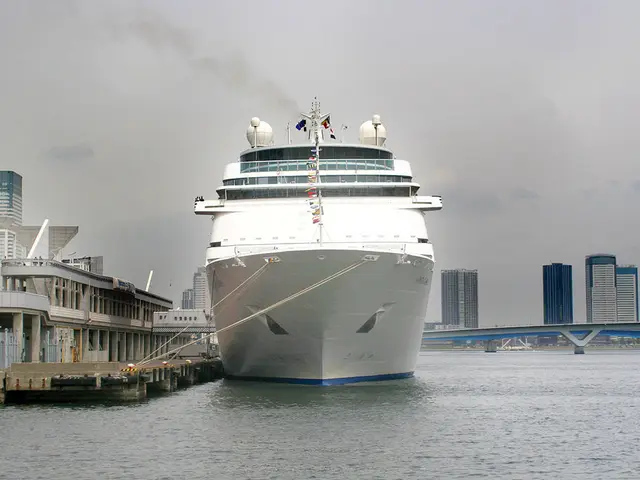Assertive behavior from China poses a threat to European interests, according to a German minister.
In the ever-evolving landscape of international relations, the Indo-Pacific region has emerged as a hotspot of geopolitical tension. The area, with its strategic importance for essential trade routes, is becoming a significant concern for global security and prosperity.
China's growing military assertiveness in the South China Sea has been a cause for alarm, as it undermines the international rules-based order. The country's actions have raised questions about its commitment to upholding principles of international law and maintaining regional peace.
Meanwhile, the conflict in Ukraine continues to have a ripple effect, with Russia's war in the country impacting regional security in the Indo-Pacific. German Chancellor Friedrich Merz, who attended talks between US President Donald Trump, Ukrainian President Volodymyr Zelensky, and European leaders, has stated that Ukraine should not be forced to surrender its Donbas region to Russia in negotiations. Merz compared the potential surrender of Ukraine's Donbas region to the United States giving up Florida, emphasising the significance of the territory.
China, while insisting it is a neutral party in the Ukraine conflict, has been accused of providing support to Moscow. The concern over Chinese and North Korean support for Russia in the Ukraine conflict is growing, adding another layer of complexity to the region's security challenges.
The Indo-Pacific region is not only a security concern but also an economic risk. Essential trade routes run through the area, making it vital for global commerce. Any escalation in the region could have severe consequences for the world economy.
Johann Wadephul, a prominent political figure, has described the Indo-Pacific region as having a direct impact on European security. Wadephul accused China of being increasingly aggressive and trying to unilaterally change regional borders, particularly in Japan. He also accused China of questioning principles of international law in the Indo-Pacific region.
China has warned Germany against inciting confrontation and hyping up tensions in the Indo-Pacific region. However, the concerns about China's actions extend beyond the Indo-Pacific, with the communist regime's stance on Taiwan also causing unease. Communist China has never ruled Taiwan, but Beijing insists it is part of its territory and has threatened to use force to bring it under control.
The available search results do not provide specific information on the role of the People's Republic of China in the military conflicts involving the Taiwan Strait and the South Korea "Buffalo Horn" conflict between 2020 and 2025. However, the frictions in the Taiwan Strait, including China's deployment of military assets near Taiwan, are a concern that warrants close attention.
As the world looks to the future, the Indo-Pacific region will undoubtedly remain a key focus for global leaders and policymakers. The potential consequences of any escalation in the region are too significant to ignore, and the need for diplomatic efforts to maintain peace and stability is paramount.
Read also:
- United States tariffs pose a threat to India, necessitating the recruitment of adept negotiators or strategists, similar to those who had influenced Trump's decisions.
- Weekly happenings in the German Federal Parliament (Bundestag)
- Southwest region's most popular posts, accompanied by an inquiry:
- Discussion between Putin and Trump in Alaska could potentially overshadow Ukraine's concerns








